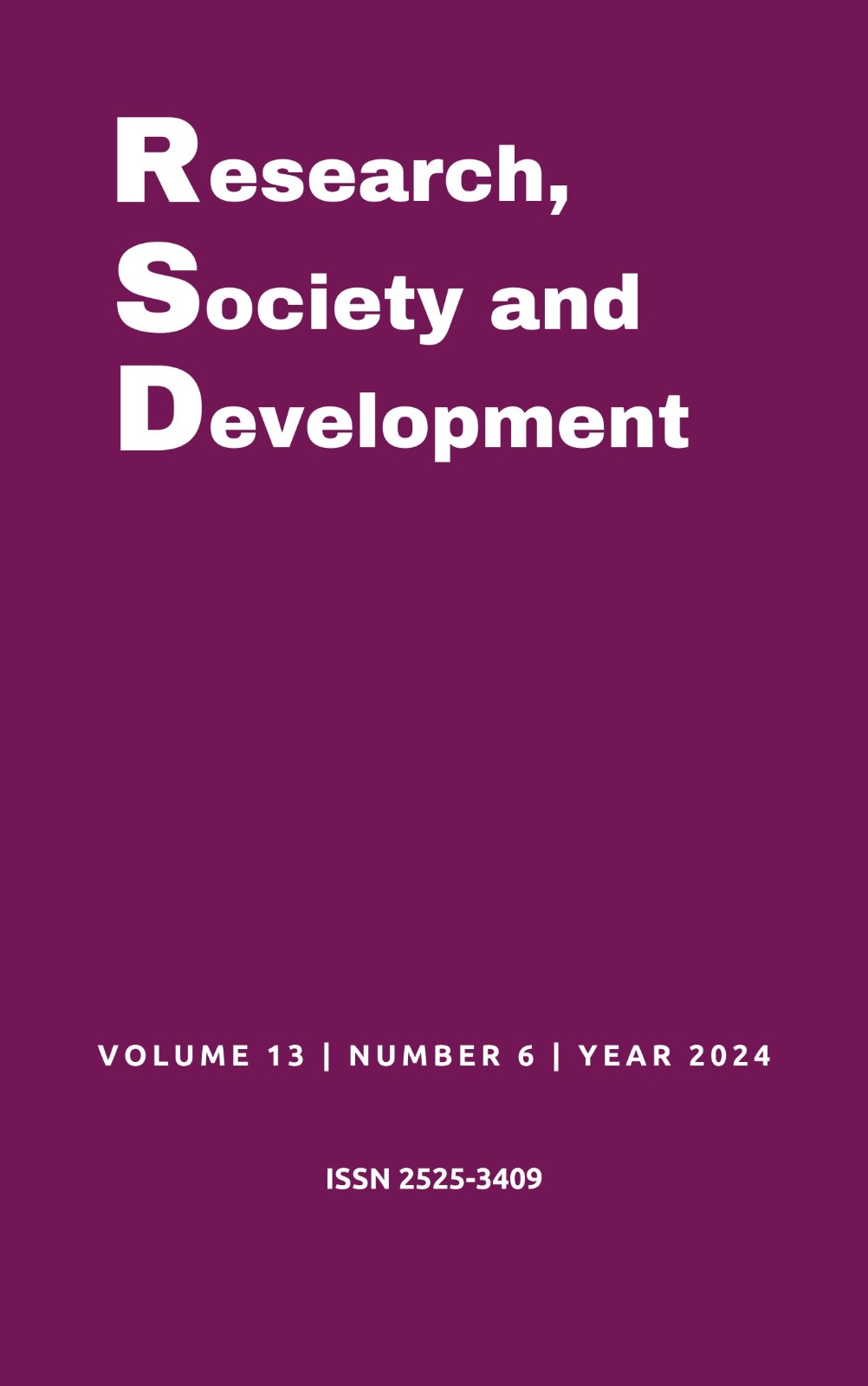El uso emergente de Ozempic en el tratamiento de la obesidade
DOI:
https://doi.org/10.33448/rsd-v13i6.46063Palabras clave:
Ozempic®; Semaglutida; Diabetes; Obesidad; Sustain; Step.Resumen
El estudio "El Uso Emergente de Ozempic® en el Tratamiento de la Obesidad" analiza la eficacia y seguridad de la semaglutida (Ozempic®), originalmente aprobada para la diabetes tipo 2, en el tratamiento de la obesidad. El objetivo es revisar estudios clínicos para informar la práctica clínica sobre los beneficios del medicamento para la pérdida de peso. La metodología incluye la revisión de estudios de los programas SUSTAIN y STEP, que investigaron la semaglutida en diferentes poblaciones, incluidas personas con y sin diabetes tipo 2. Los estudios SUSTAIN demostraron reducciones significativas en la glucosa sanguínea y en la hemoglobina HbA1c, además de un perfil de seguridad favorable. El programa STEP mostró que la semaglutida resultó en una pérdida media de peso entre 14,9% y 17,4% después de 68 semanas de tratamiento. La conclusión destaca que la semaglutida no solo promueve una pérdida de peso significativa, sino que también mejora parámetros de salud como el control glucémico, la prevención de eventos cardíacos como el derrame cerebral y el ataque cardíaco en personas con enfermedades cardiovasculares, y el perfil lipídico, siendo una opción prometedora en el manejo de la obesidad. La supervisión médica es esencial, dada la necesidad de monitorear los efectos secundarios y realizar ajustes de dosis.
Citas
Aroda, V. R., et al. (2019). Comparative efficacy, safety, and cardiovascular outcomes with once-weekly subcutaneous semaglutide in the treatment of type 2 diabetes: Insights from the SUSTAIN 1-7 trials.
Aroda, V. R., et al. (2017). Efficacy and safety of once-weekly semaglutide versus once-daily insulin glargine as add-on to metformin (with or without sulfonylureas) in insulin-naive patients with type 2 diabetes (SUSTAIN 4): A randomised, open-label, parallel-group, multicentre, multinational, phase 3a trial. *Lancet Diabetes Endocrinology*.
Blundell, J., et al. (2017). Effects of once-weekly semaglutide on appetite, energy intake, control of eating, food preference and body weight in subjects with obesity.
Davies, M., et al. (2021). Semaglutide 2.4 mg once a week in adults with overweight or obesity, and type 2 diabetes.
Davies, M. J., et al. (2016). Efficacy and safety of liraglutide versus placebo as add-on to glucose-lowering therapy in patients with type 2 diabetes and moderate renal impairment (LIRA-RENAL): A randomized clinical trial.
Davies, M. J., et al. (2021). Semaglutide 2.4 mg once a week in adults with overweight or obesity, and type 2 diabetes (STEP 2): A randomised, double-blind, double-dummy, placebo-controlled, phase 3 trial.
Husain, M., et al. (2019). Semaglutido oral e resultados cardiovasculares em pacientes com diabetes tipo 2.
Marso, S. P., et al. (2016). Semaglutide and cardiovascular outcomes in patients with type 2 diabetes. *New England Journal of Medicine, 375*(19), 1834-1844.
O'Neil, P. M., et al. (2019). Efficacy and safety of semaglutide compared with liraglutide and placebo for weight loss in patients with obesity: A randomised, double-blind, placebo and active controlled, dose-ranging, phase 2 trial.
Pratley, R. E., et al. (2018). Semaglutide versus dulaglutide once weekly in patients with type 2 diabetes (SUSTAIN 7): A randomised, open-label, phase 3b trial. *Lancet Diabetes Endocrinology*.
Rodbard, H. W., et al. (2018). Semaglutide added to basal insulin in type 2 diabetes (SUSTAIN 5): A randomized, controlled trial.
Rubino, D., et al. (2021). Effect of continued weekly subcutaneous semaglutide vs placebo on weight loss maintenance in adults with overweight or obesity: The STEP 4 randomized clinical trial.
Smith, J., et al. (2020). Pharmacokinetics and tolerability of semaglutide once-weekly in subjects with type 2 diabetes: A randomized, double-blind, placebo-controlled trial.
Snyder, H. (2019). Literature review as a research methodology: An overview and guidelines. Journal of Business Research, 104, 333-339. doi:10.1016/j.jbusres.2019.07.039
Vanita, R. A., et al. (2019). Semaglutide once weekly as add-on to SGLT-2 inhibitor therapy in type 2 diabetes (SUSTAIN 9): A randomised, placebo-controlled trial. *Lancet Diabetes Endocrinology*.
Wadden, T. A., et al. (2021). Effect of weekly semaglutide vs placebo as an adjunct to intensive behavioral therapy on body weight in adults with overweight or obesity.
Wadden, T. A., et al. (2021). Effect of subcutaneous semaglutide vs placebo as an adjunct to intensive behavioral therapy on body weight in adults with overweight or obesity: The STEP 3 randomized clinical trial.
Wilding, J. P. H., et al. (2021). Once-weekly semaglutide in adults with overweight or obesity.
Zinman, B., et al. (2019). Semaglutide once weekly as add-on to SGLT-2 inhibitor therapy in type 2 diabetes (SUSTAIN 9): A randomised, placebo-controlled trial. *Lancet Diabetes Endocrinology*.
Descargas
Publicado
Cómo citar
Número
Sección
Licencia
Derechos de autor 2024 Evelyn de Oliveira de Maria; Loren Stefani Santos Pereira; Miriã da Silva Felacio; Remaz Sameh Ibrahim Shillo

Esta obra está bajo una licencia internacional Creative Commons Atribución 4.0.
Los autores que publican en esta revista concuerdan con los siguientes términos:
1) Los autores mantienen los derechos de autor y conceden a la revista el derecho de primera publicación, con el trabajo simultáneamente licenciado bajo la Licencia Creative Commons Attribution que permite el compartir el trabajo con reconocimiento de la autoría y publicación inicial en esta revista.
2) Los autores tienen autorización para asumir contratos adicionales por separado, para distribución no exclusiva de la versión del trabajo publicada en esta revista (por ejemplo, publicar en repositorio institucional o como capítulo de libro), con reconocimiento de autoría y publicación inicial en esta revista.
3) Los autores tienen permiso y son estimulados a publicar y distribuir su trabajo en línea (por ejemplo, en repositorios institucionales o en su página personal) a cualquier punto antes o durante el proceso editorial, ya que esto puede generar cambios productivos, así como aumentar el impacto y la cita del trabajo publicado.

